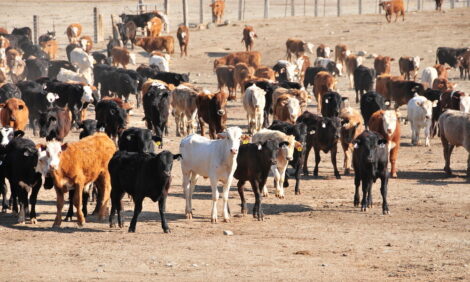



OIE Recognises US Centre for Biological Threat Reduction
US - The Institute for Infectious Animal Diseases (IIAD) has been recognised as a collaborating centre in the specialty of biological threat reduction for the World Organisation for Animal Health (OIE).IIAD was previously known as the National Center for Foreign Animal and Zoonotic Disease Defense. The new designation was made at the 82nd General Session of the OIE, held last week in Paris, France.
OIE is the intergovernmental organization responsible for improving animal health worldwide. It is recognised as a reference organization by the World Trade Organization (WTO) and has 180 member countries. The OIE maintains permanent relations with 51 international and regional organizations and has regional and sub-regional offices on every continent.
OIE collaborating centres represent expertise in a specific sphere of competence relating to animal health issues. As a collaborating centre, IIAD will provide its expertise internationally to support and implement animal health initiatives, provide scientific and technical training, and conduct scientific research focused on global animal health. There are more than 40 collaborating centres worldwide, working in areas related to animal health, including animal welfare, food safety, vaccine development and disease surveillance. With this designation, IIAD becomes the only biological threat reduction centre in the OIE's America's region and the only OIE collaborating centre within the Texas A&M University System.
Both OIE and IIAD have a long-standing practice of working in partnership with existing organizations in academia, government and private industry; each believe animal health is best advanced by assisting, coordinating and making use of the activities of existing institutions.
IIAD Director, Dr Tammy Beckham, said: "IIAD works to bring together multi-disciplinary teams to address complex animal health challenges. To achieve the Institute's mission, we must leverage leading experts, researchers and resources of our partner organizations to ensure comprehensive assessment, collaborative development and smooth deployment of animal health solutions."
IIAD is being added to the roster of collaborating centres to strengthen OIE's efforts in global biological security. While most animal disease outbreaks occur naturally, there is a real risk that an animal disease may be introduced deliberately. This type of introduction could have a large scale, global impact on animal health, economic viability, food security and public health. Efficient animal health surveillance is key to detecting accidental or deliberate animal disease outbreaks and is one of the most effective and sustainable ways to protect against these threats.
IIAD excels in this arena, developing surveillance systems, workforce-training programmes, and diagnostic tools, all designed to strengthen early detection, rapid response and quick recovery in the event of animal disease outbreak. This expertise in biological threat reduction is the hallmark of IIAD's research and development portfolio and will add a strong partner to the OIE network.
A key task of any collaborating centre is working to develop and facilitate harmonisation of international standards and guidelines related to animal health.
Dr Beckham added: "We live in a global society where animal diseases do not recognize national borders. To ensure the safety of our food supply, the continuity of trade and the health of animals and people alike, we must take a global approach to disease testing, surveillance, mitigation and prevention. We are excited about the possibilities that lie ahead for IIAD and our partnership with OIE."
TheCattleSite News Desk


